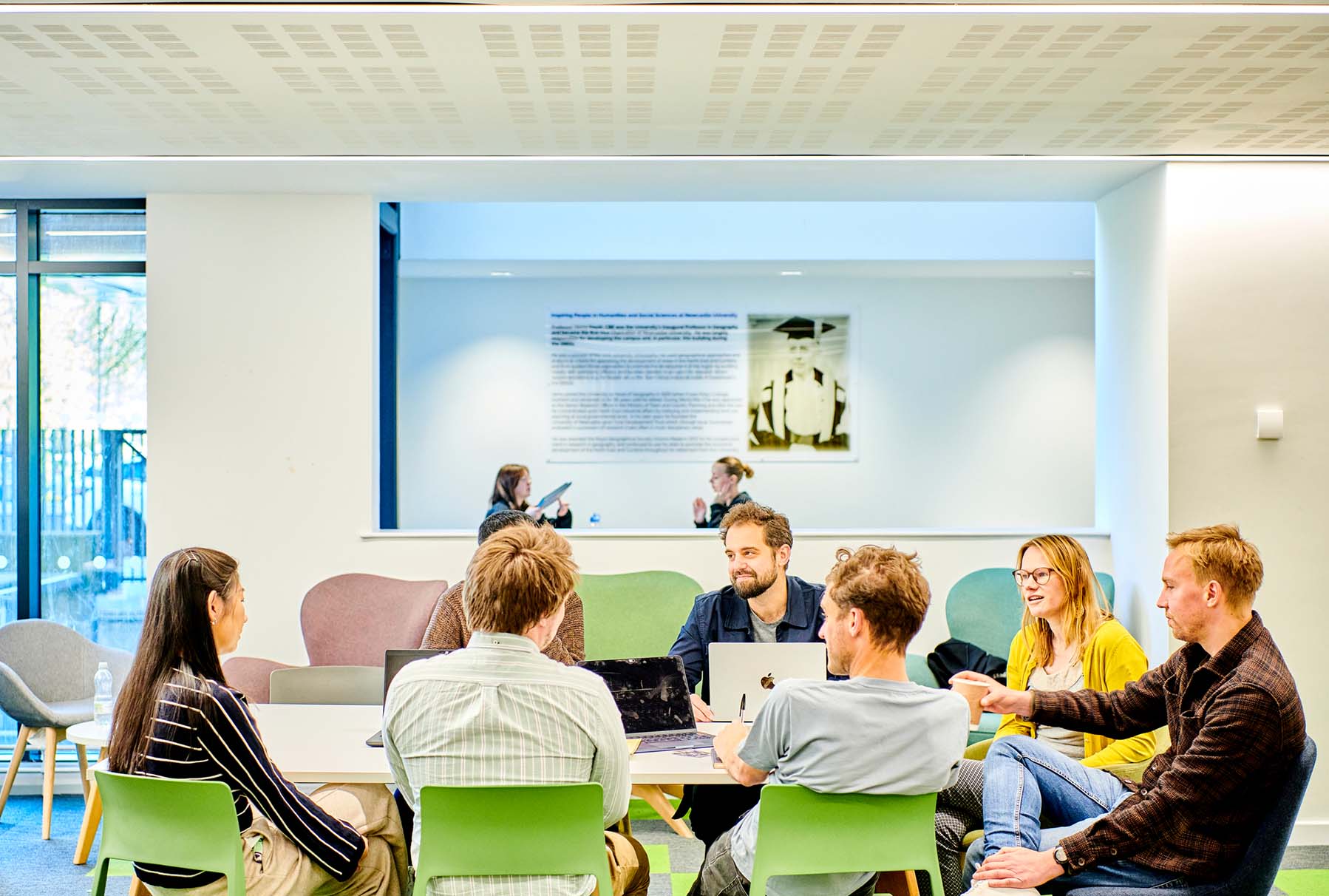Staff Profile
Dr Shoko Sugasawa
Newcastle University Academic Track Fellow
- Email: shoko.sugasawa2@ncl.ac.uk
- Personal Website: https://shokosugasawa.weebly.com/
- Address: Biosciences Institute
Henry Wellcome Building
Newcastle University
Framlington Place
Newcastle upon Tyne
NE2 4HH
Qualifications
PhD in Biology, University of St Andrews
MSc in Ecosystem Studies, University of Tokyo
BSc in Ecoregion Science, Tokyo University of Agriculture & Technology
Previous Positions
Lecturer in Animal Behaviour & Cognition (fixed-term, part-time), University of St Andrews
Temporary Research Assistant, Newcastle University
BBSRC Discovery Fellow, University of St Andrews
JSPS Overseas Research Fellow, University of St Andrews
Biology lecturer and tutor, University of St Andrews
I have a broad interest in the ecology and evolution of animal behaviour, with particular focus on object manipulation by animals without hands.
Many animals manipulate diverse objects including food and nest materials to survive and breed successfully. I am interested in why animals like birds and insects are so good at manipulation, even though they lack hands like ours and only have simple manipulators like bills and mandibles (Sugasawa et al. 2021 Proc Roy Soc B). With NUAcT Fellowship, I am currently working to expand my study system to insects such as bumblebees and praying mantises, to investigate how insects use their body parts to handle food items like flowers and prey. Further, to better understand the bill dexterity in birds and its ecological significance, I have been studying nest building (Sheard et al. 2023 Philos Trans R Soc B) and tool use (Sugasawa et al. 2017 Curr Biol) for the past decade.
Additionally, I have a keen interest in migration, in particular long-distance migration in Asian raptors. Every year, billions of animals travel between their breeding and wintering sites over thousands of kilometres. I am interested in studying which factors influence long-distance migration, and how migratory behaviour evolved, using wonderful data from Asian Flyways. In collaboration with Prof. Hiroyoshi Higuchi (Tokyo), we found that migration of Oriental honey buzzards (Pernis ptilorhynchus) is highly repeatable but only in spring when they forage during extended stopovers, potentially due to their specialist diet (Sugasawa & Higuchi 2019 Biol Lett).
MMB8043: Comparative Cognition: Information Processing in Humans and Other - contributing lecturer
PSY3097: Psychology Empirical Project - supervisor
I also supervise PhD/MSc projects as a primary or secondary supervisor.
Previous lectures at the University of St Andrews and the University of Lincoln:
Animal Behaviour, Animal Cognition, Animal Culture
-
Articles
- Sugasawa S. Stick dexterity in carrion crows. Learning & Behavior 2025, Epub ahead of print.
- Sugasawa, S, Hansell, M, Reilly, M, Healy, SD. Causes and consequences of material variation in avian nest building. Journal of Avian Biology 2025, (2), e03438.
- Sheard C, Stott L, Street SE, Healy SD, Sugasawa S, Lala KN. Anthropogenic nest material use in a global sample of birds. Journal of Animal Ecology 2024, 93(6), 691-704.
- Sheard C, Street SE, Evans C, Lala KN, Healy SD, Sugasawa S. Beak shape and nest material use in birds. Philosophical Transactions of the Royal Society B: Biological Sciences 2023, 378(1884), 20220147.
- Sugasawa S, Pritchard DJ. The significance of building behaviour in the evolution of animal architecture. Ecological Research 2022, 37(3), 316-324.
- Healy SD, Sugasawa S, Tello-Ramos MC, Pritchard DJ. Space, the original frontier. Current Opinion in Behavioural Sciences 2022, 44, 101106.
- van der Wal, JEM, Spottiswoode, CN, Sugasawa, S. Opportunities and risks of publishing academic talks online. Nature Ecology & Evolution 2022, 6, 830–831.
- Sugasawa S, Webb B, Healy SD. Object manipulation without hands. Proceedings of the Royal Society B: Biological Sciences 2021, 288(1947), 20203184.
- Breen, AJ, Sugasawa, S, Healy, SD. Manipulative and technological skills do not require a slow life history. Frontiers in Ecology and Evolution 2021, 9, 635802.
- Sugasawa S, Edwards SC, Stanforth R, Bruton E, Hansell M, Reilly M, Healy SD. A non-destructive approach to collect nest material data using photographs. Ibis 2021, 163(4), 1457-1462.
- Sugasawa S, Higuchi H. Seasonal contrasts in individual consistency of oriental honey buzzards' migration. Biology Letters 2019, 15(6).
- St Clair JJH, Klump BC, Sugasawa S, Higgott CG, Colegrave N, Rutz C. Hook innovation boosts foraging efficiency in tool-using crows. Nature Ecology and Evolution 2018, 2, 441–444.
- Sugasawa S, Klump BC, St Clair J, Rutz C. Causes and consequences of tool shape variation in New Caledonian crows. Current Biology 2017, 27, 3885-3890.
- Rutz C, Sugasawa S, van der Wal JEM, Klump BC, St Clair J. Tool bending in New Caledonian crows. Royal Society Open Science 2016, 3, 160439.
- St Clair J, Klump BC, van der Wal JEM, Sugasawa S, Rutz C. Strong between-site variation in New Caledonian crows' use of hook-tool-making materials. Biological Journal of the Linnean Society 2016, 118.
- Rutz C, Klump BC, Komarczyk L, Leighton R, Kramer J, Wischnewski S, Sugasawa S, Morrissey MB, James R, St Clair J, Switzer RA, Masuda BM. Discovery of species-wide tool use in the Hawaiian crow. Nature 2016, 537, 403-407.
- Klump BC, Sugasawa S, St Clair J, Rutz C. Hook tool manufacture in New Caledonian crows: behavioural variation and the influence of raw materials. BMC Biology 2015, 13, 97.
-
Book Chapter
- Tello-Ramos MC, Sugasawa S, Dibia MF, Hunter K. Tools, behavior, and materials: what should we learn from animal nest construction?. In: Hepp, A; Eggermont, M; Shyam, V, ed. Biomimicry for Materials, Design and Habitats. Elsevier, 2022.
-
Conference Proceedings (inc. Abstract)
- Sugasawa S, Yamaguchi N, Higuchi H. The effect of weather conditions on the migration of Grey-faced Buzzards breeding in Japan. In: British Ornithologists' Union Proceedings – The Ecology & Conservation of Migratory Birds. 2011.
